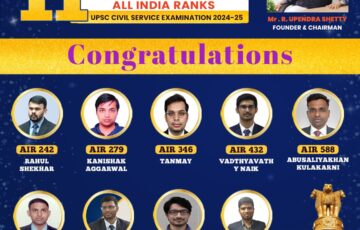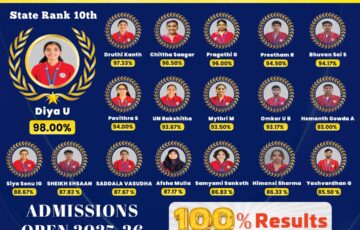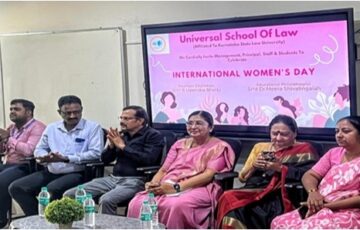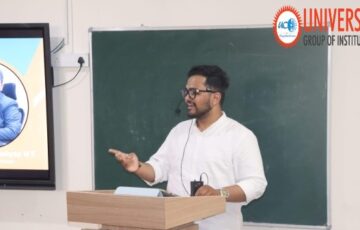Orientation Programme Conducted by Anti-Sexual Harassment Cell on 11 January 2021
The Sexual Harassment of Women at Workplace (Prevention, Prohibition and Redressal) Act was passed on 23 April 2013 with the view to provide protection against sexual harassment of women at the workplace. Moreover, it also provides for the prevention and redressal of complaints of sexual harassment and related matters. This Act is an extension of Vishaka Guidelines issued by the Supreme Court in 1997. In the Vishaka Guidelines, the Supreme Court for the first time acknowledged sexual harassment at the workplace as a human rights violation.
It is essential to know the backdrop behind this historic judgment. The case dates back to 1997 on Bhanwari Devi (Vishaka & Ors. V/S State of Rajasthan and Ors on 13 August 1997; Bench: CJI Sujata V. Manohar, B.N. Kirpal) Case. Bhanwari Devi, a Dalit woman belonged to Rajasthan and was a social worker under the Rajasthan government’s Women’s Development Programme. She used to spread awareness regarding family planning, girls’ education, hygiene, the campaign against dowry, child marriage, etc. She was gang-raped when she tried to halt the marriage of a nine-month-old daughter of Ramkaram Gujjar. For trying to stop this social evil, she was gang-raped by Ramkaran Gujjar and his five friends.
This incident did not stop her from being brave. She filed a criminal complaint against the offenders but the accused were acquitted by a trial court as everyone in her village refused to agree to her complaint. This kind of utter ignorance and injustice led several women’s groups and NGO’s to file a Public Interest Litigation (PIL) under the collective platform of Vishaka in the Supreme Court in 1997.
In this purview, the Supreme Court drew upon the Convention on the Elimination of All Forms of Discrimination against Women (CEDAW), an international human right law instrument to pass Vishaka Guidelines.
The court highlighted that such incidents result in violation of the basic fundamental rights of Gender Equality and the Right to Life and Liberty which is guaranteed under Articles 14, 15, and 21 of the Indian Constitution. The court also highlighted that every organization should constitute an Internal Complaints Committee is also known as Vishaka Committee to file complaints of any kind of sexual harassment that women face at workplaces.
A number of women today are entering the country’s workforce, many women face sexual harassment on an everyday basis. Therefore, it is essential that we work together to eliminate any kind of harassment for women to have the right to work in a safe and secure environment. This act will contribute to realise the right to gender equality which would result in economic empowerment and inclusive growth and benefit the country in its entirety. India has become a part of a select group of countries to have prohibited sexual harassment at the workplace through national legislation.
In line with the above Act, on 11th January 2021, Universal Group of Institutions conducted an orientation programme on issues related to sexual harassment. It catered to realisation of basic human rights of gender equality and guarantee against any reported cases of sexual harassment within the campus. The ‘Anti-sexual Harassment Cell’ in the campus aims to promote a social and psychological environment that will raise awareness about sexual harassment in its various forms. Any cases reported, will be dealt with strictly by the Internal Complaint Committee constituted by the Cell.
The guest of honour was Mr. Rupak Kumar Dutta (Retired IPS) who is presently serving as a Member of the Karnataka State Human Rights Commission. He has held various important positions since 1986 when he served as Superintendent of Police, Karwar. Apart from this, he has participated in various important activities in India and abroad and has been honored with President’s Media.
The programme started with a welcome speech by Saleha Ansari and an invocation by Dibyajeet Jha. The invocation was lauded by the audience as well as the guest. After the introductory speech by Muniruddin Qureshi and our guest being introduced by Mubbashir, the programme proceeded with the inauguration of the programme. The e-mail ID was created by the institution in the name ‘[email protected]’ wherein the victims of harassment could any time approach by writing to the same. For the inauguration of the programme, our Chief Guest logged in to the aforementioned email id.
The programme was carried forward by the Chief Guest’s Presidential address. He started his address by mentioning the importance of constituting the ‘Anti-Sexual Harassment Cell’ in the workplace and about inculcating gender sensitivity among youths.
He gave a very interesting account of the Constitution of India. He started with an explanation about the ethos of the Preamble and how it is a guide to different parts of the Constitution.
He further made a very interesting account of his experience as an IPS officer. He highlighted how challenging it is to be a civil servant and dealt with the public at large. His experience in working for CBI and handling various cases was encouraging and motivating for the students.
He motivated students on how important the role of civil servants is in India and the significance of working at the grassroots level.
The session ended with an interactive session with students. The students asked a plethora of questions to which he answered in a very informative and interesting manner.













